+ BRINE SDS
+ CALCIUM CHLORIDE WITH BOOST SDS
+ BOOST SB SDS
+ LIQUIDOW SDS
+ MELTDOWN SDS
Midwest Winters are Unpredictable, Road Safety Shouldn’t Be
Clear roads are safe roads.
Prevent snow and ice from sticking to the pavement before it even hits the ground.
What You’re Up Against
It’s not a winter in the midwest without snow and ice. With winter weather comes dangerous road conditions, long hours for road crews, and expensive road clearing.

When Your Winter Preparation Fails
Not all winter weather solutions perform in harsh conditions. Salt and sand stop working as effectively below 32 degrees, leaving your roads slick and unsafe.

What You’re Up Against
It’s not winter in the midwest without snow and ice. With winter weather comes dangerous road conditions, long hours for road crews, and expensive road clearing.
When Your Winter Preparation Fails
Not all winter weather solutions perform in harsh conditions. Salt and sand stop working below 32 degrees, leaving your roads slick and unsafe.
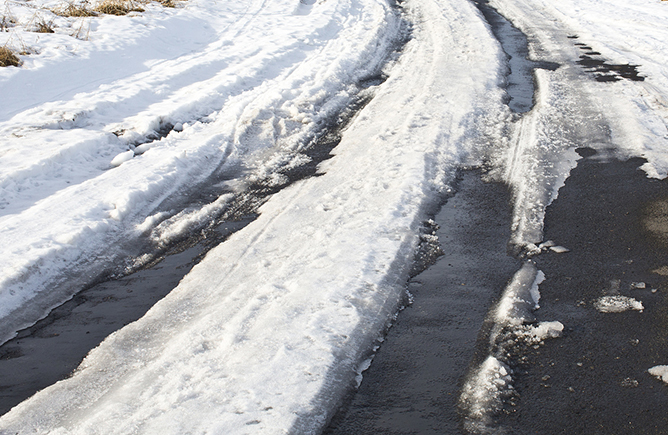
What You’re Up Against
It’s not winter in the midwest without snow and ice. With winter weather comes dangerous road conditions, long hours for road crews, and expensive road clearing.
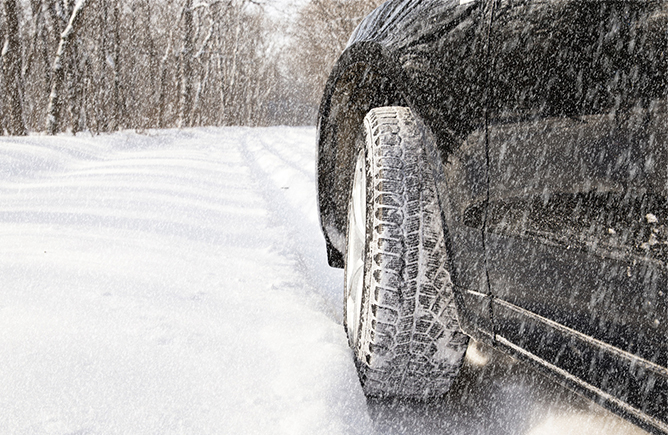
When Your Winter Preparation Fails
Not all winter weather solutions perform in harsh conditions. Salt and sand stop working below 32 degrees, leaving your roads slick and unsafe.

What You’re Really Spending
The longer ice sits on the road, the more accidents take place, the more money you spend trying to clear roads and the more hours crews log on the clock.
Million dollars spent in 2015 on winter road service in Indiana and Michigan.
Thousand man hours spent on winter road operations in Indiana and Michigan, 2015.
Thousand tons of salt used in Michigan and Indiana in 2015, not including brine.
Data according to the American Association of State Highway Transportation Officials, 2015
What You Could Save
With proactive snow and ice control, you save resources and time. Use less product and get results faster.
Percent reduction in the use of de-icer when anti-icing is done first.
(Water Protection Practices, EPA, 2010)
Percent decrease of snow coverage with calcium chloride compared to other agents.
(Ontario Ministry of Transportation)
Percent decrease in salt loss when pre-wetted with calcium chloride.
(Salt Bounce and Scatter Study, MDOT)
Less Waste, Less Snow, Less Money
We take steps to make ice and snow control effective and efficient. With the right plan in place, we can decrease the time and money spent on snow control.

1. Strategize
Start with a plan based on your needs. Our goal is to find the best way to keep roads clear with fewer accidents and fewer hours on the road.
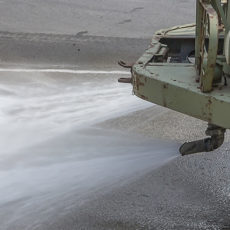
2. Anti-Ice
Slow down winter storms before they hit! Spreading a layer of calcium chloride prevents ice and snow from bonding or sticking to the surface.
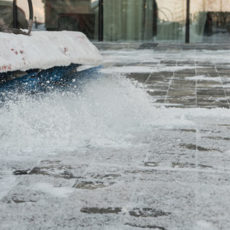
3. De-Ice
Calcium chloride helps salt melt faster. When temps go below 32 degrees, salt isn’t as effective. Boost your efforts and reduce bounce and scatter.
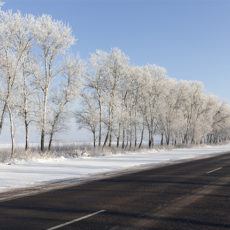
4. Take Control
Make your winter weather plan work for you. Calcium chloride helps make your roads safer, your salt more efficient, and road conditions less severe.

COMMERCIAL DE-ICING FAQ
Are you looking for answers about de-icing? Here are a few questions we often see from clients to help you get started.
WHAT IS THE DIFFERENCE BETWEEN DE-ICE AND ANTI-ICE?
De-icing removes ice that has formed on the road. This is done after a winter event has taken place. Anti-icing happens before snow or ice to prevent ice and snow from bonding to the road.
WILL DE-ICING WITH CACL2 DAMAGE MY CONCRETE?
OxyChem calcium chloride products are recommended for deicing asphalt and concrete surfaces that have been designed and constructed for winter weather conditions and deicer usage. OxyChem calcium chloride products will not chemically attack asphalt or concrete.
IS CALCIUM CHLORIDE SAFE FOR USE NEAR GRASSY AREAS?
Under typical application conditions, calcium chloride will not damage grass or vegetation adjacent to a surface being deiced. As with fertilizer and any other deicer, it is possible for grass to be damaged if the chloride-based deicer is over-applied or large quantities are directly applied to the grass or vegetation. Roadside damage to conifers caused by contact with chloride-containing mist from high-speed tire action is a potential issue with highway applications of any chloride-based deicer.

Travis Bartholomew
– Kalamazoo Road Commission General Superintendent
‘We saw a 12,000 ton reduction in salt usage in three years. Adding Calcium chloride reduced winter maintenance costs by more than $360,000.’
RESOURCES AND CASE STUDIES
Salt shortages, extreme winters amd poor performance from expensive products. Read these case studies from accross the country on winter weather road upkeep.
Ready to put Calcium chloride to work in your winter weather gameplan?
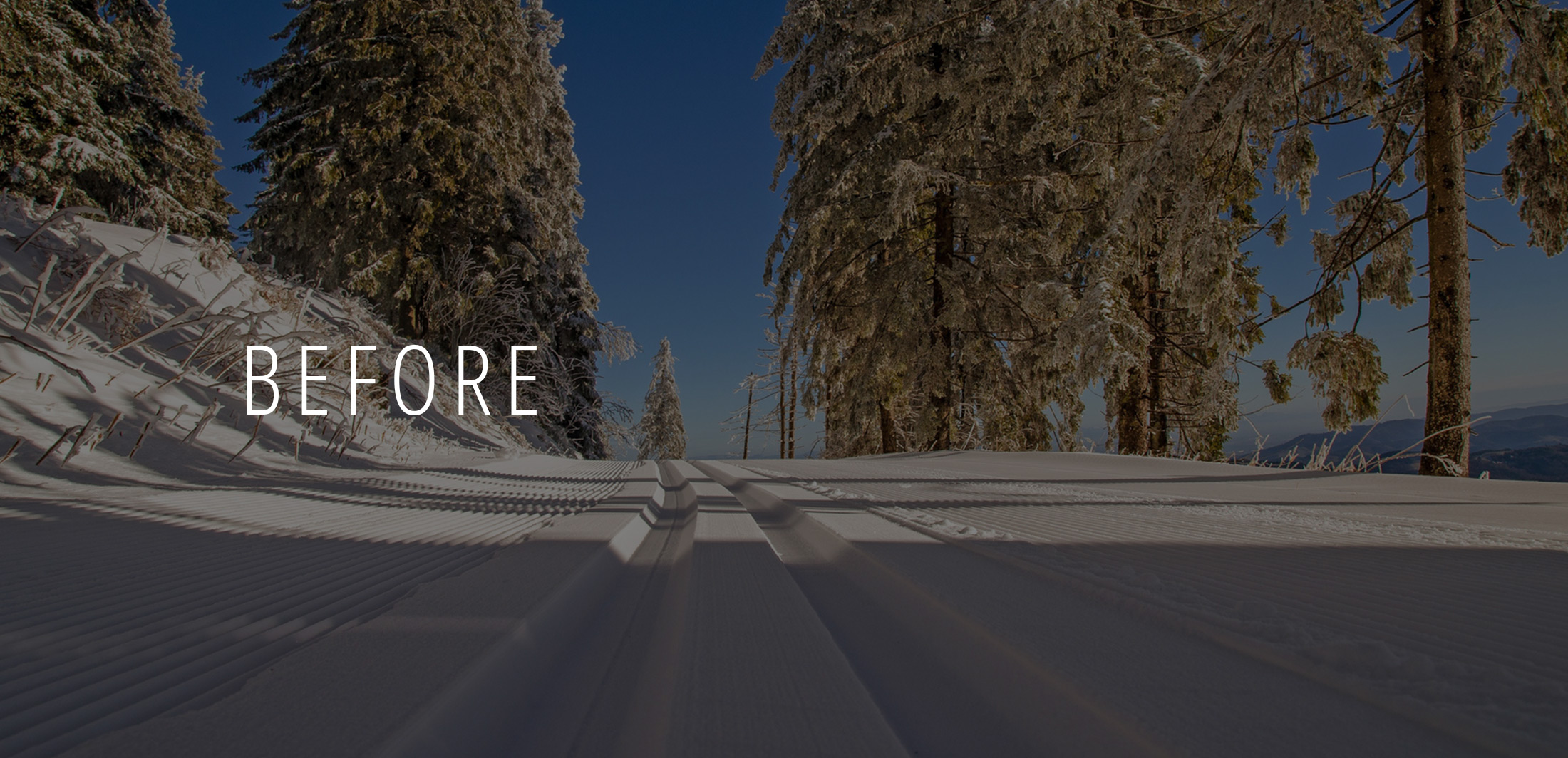
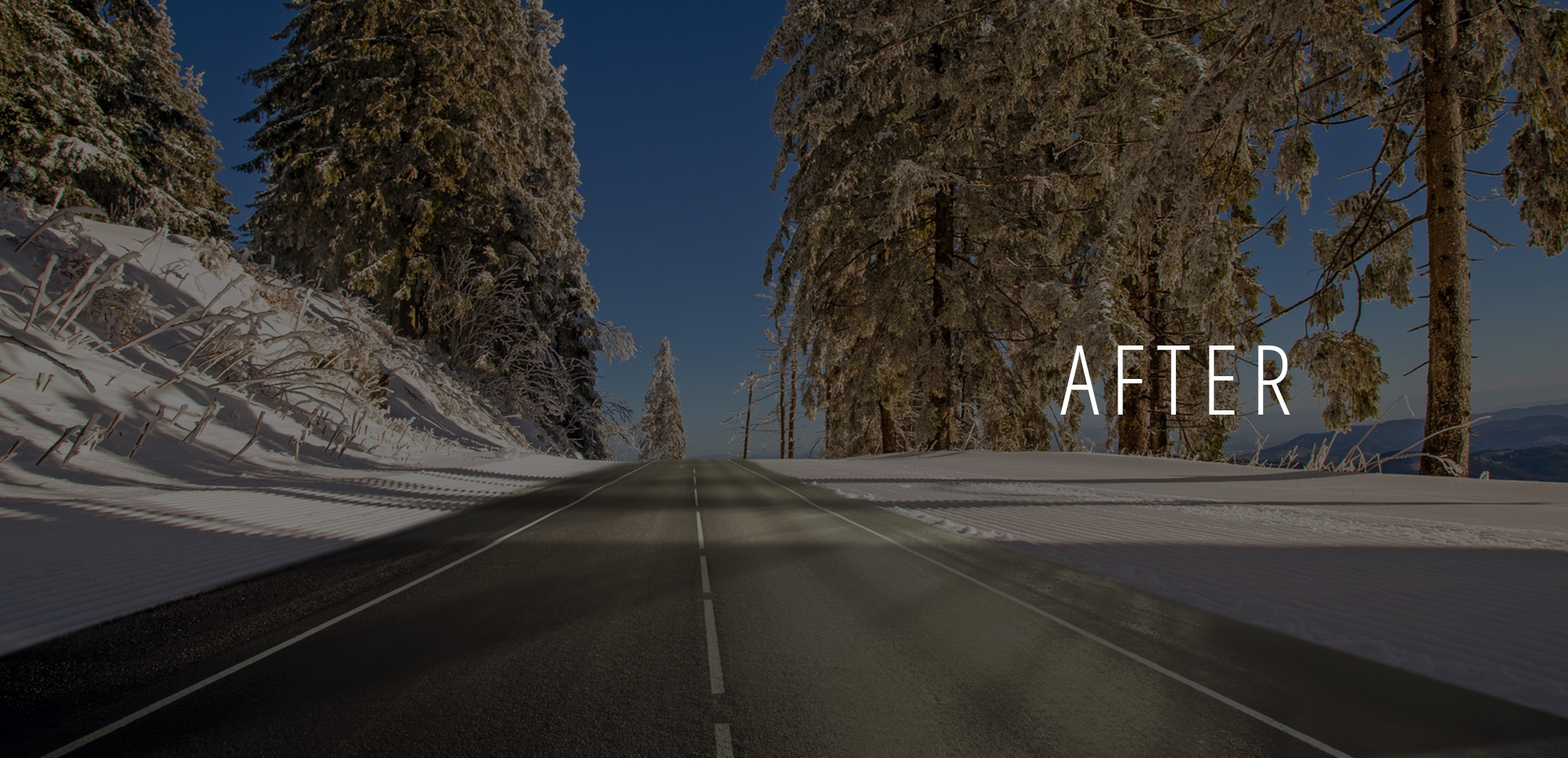
Oops! We could not locate your form.
Ready to put Calcium chloride to work in your winter weather gameplan?
Oops! We could not locate your form.



